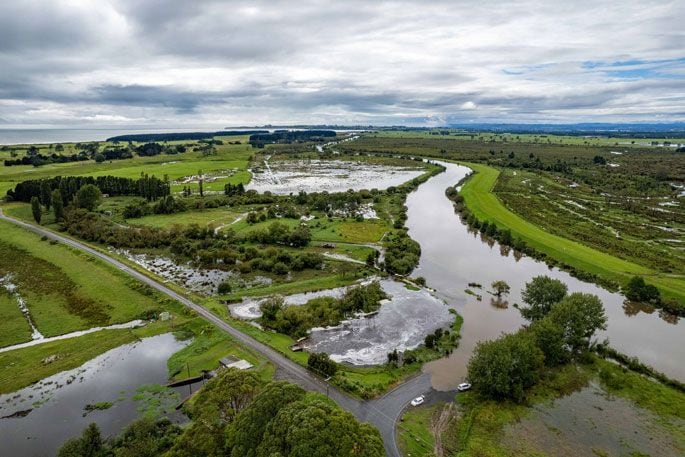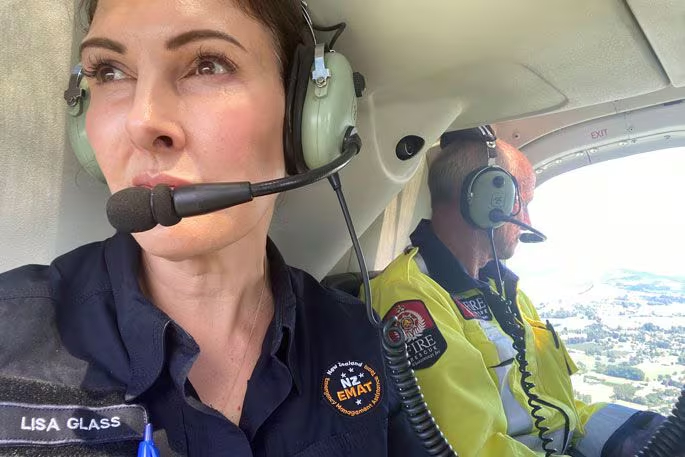A Tauranga woman has made history as the first international graduate of a US Federal Emergency Management Agency’s elite programme.
In a groundbreaking achievement for New Zealand’s emergency management community, Lisa Glass, a professional with Emergency Management Bay of Plenty, has become the first international participant to graduate from the prestigious Master Public Information Officer (MPIO) programme offered by Fema.
Glass’ accomplishment is remarkable, given that only 179 individuals worldwide have earned the MPIO designation, all of whom have been from the United States—until now.
Her selection for this highly competitive programme was no small feat; the admission process demands a rigorous application, a robust portfolio, and the completion of numerous prerequisites, with many applicants ultimately missing out.
Over the past year, Glass embarked on an intensive journey, travelling to the National Disaster and Emergency Management University in Emmitsburg, Maryland, for three demanding block courses alongside fellow students from across the US, including one from Alaska.
While she didn’t have to pay for tuition, travel isn’t cheap, and she acknowledges help received from Emergency Management BOP, BOP Regional Council, and EMAT – the national response team, to enable her the flexibility to study.
In addition to the classroom experience, each candidate devoted eight months to producing an independent research paper on a topic relevant to emergency communications. Glass’ exceptional work culminated in a stunning grade of 98, securing her paper a spot in the university library as a reference for future scholars. Only papers receiving a grade greater than 90/100 achieve this.
“For my paper I had to do something not done before, it had to be relevant to emergency management, support communities, and had to have practical value,” said Glass.
“I talked with NZ public information people and compared how we have done emergency responses to how the USA did it.”
She said the two countries, while different, had more in common around emergencies, operations’ issues, and communications, than not.
“A big focus was on ‘how are you going to use this training’ and I said I wanted to share it all back home.”
With her impressive credentials, Glass is also one of only 16 Certified Emergency Managers (CEM) in New Zealand and a vital member of the elite NZ Emergency Management Assistance Team (EMAT), which provides critical support during major emergency responses nationwide.

Flooding around the Kaituna River. Photo: Jamie Troughton/Dscribe Media.
Since joining Emergency Management Bay of Plenty in 2020, Glass has been part of teams which managed communications and public information during various emergency events, including responses to crises in the West Coast, Nelson-Tasman, Wairoa and at home in the Bay of Plenty.
Her team’s communication style during Cyclone Gabrielle earned national recognition in the Spinoff, which highlighted the popularity of her Civil Defence social media efforts.
At the annual Emergency Media and Public Affairs (EMPA) awards, Emergency Management Bay of Plenty’s communications were recognised last year for the Cyclone Gabrielle response. This year, their work on updated “blue” tsunami maps has been shortlisted for the November awards.
She notes that emergency management work needs to constantly adapt, alongside building trust within the community.
“With emergency management, people expect a lot more from us. You can’t only do emergencies by the book; you must be constantly listening and adapting.
“With Christchurch quakes they wouldn’t have been dealing with social media misinformation as they would if it happened today.”
Looking ahead, Glass is eager to leverage the insights gained from her experience in the US to enhance training programmes locally and across other civil defence emergency management (CDEM) regions.
“With much of our emergency system overhaul, there is a lot of opportunity to make positive changes while we are in the middle of things.
“What I learned there, we may be able to adapt to our people here. If it works, good, if not, then we cast it aside. We just keep on trying to think differently.”
She also aims to utilise her international network to bolster local emergency preparedness and disaster response efforts, ensuring that her community is better equipped for future challenges.
“Our goal is to keep people safe, let them know what they need to do, and let them know we are there for them.”



0 comments
Leave a Comment
You must be logged in to make a comment.